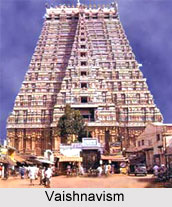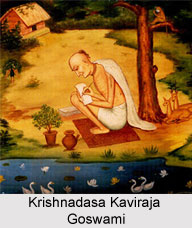 Bengali literature in the sixteenth century mainly included translation of epics. The Mahabharata was translated by Kavindra and Aswamedha canto was translated by Srikaran Nandi. The one that has been translated by Kavindra is the earliest translation of the Mahabharata in Bengali language. It has also been said that Parameswar was the real name of the translator and Kavindra was his literary title. Srikaran Nandi`s translation has at times been attributed to Kavindra. A poem on Vidya Sundar was written by Sridhar in the first quarter of the sixteenth century. The poet Kaviranjan of Srikhanda flourished at the same time.
Bengali literature in the sixteenth century mainly included translation of epics. The Mahabharata was translated by Kavindra and Aswamedha canto was translated by Srikaran Nandi. The one that has been translated by Kavindra is the earliest translation of the Mahabharata in Bengali language. It has also been said that Parameswar was the real name of the translator and Kavindra was his literary title. Srikaran Nandi`s translation has at times been attributed to Kavindra. A poem on Vidya Sundar was written by Sridhar in the first quarter of the sixteenth century. The poet Kaviranjan of Srikhanda flourished at the same time.
Kaviranjan has also written some short amatory poems in the manner of Vidyapati, the Maithili poet.
 It also earned him the name of the chhota Vidyapati. Vaishnavism by Chaitanya had also influenced the Bengal literature of the sixteenth century.
It also earned him the name of the chhota Vidyapati. Vaishnavism by Chaitanya had also influenced the Bengal literature of the sixteenth century.
Vaishnavism was given the needed impetus by Chaitanya. Vaishnavism was a manifold expression of the human spirit. The movement derived its main impetus from Chaitanya`s personality. Chaitanya had devoted only last twenty four years to Vaishnavism yet it became popular throughout India. His followers believed him to have been heaven-inspired, even an incarnation of God. The works of Sanatan, Rup, and Jiv Goswami were written and the Life of Chaitanya by Krisnadas Kaviraj.
This article is a stub. You can enrich by adding more information to it. Send your Write Up to content@indianetzone.com













